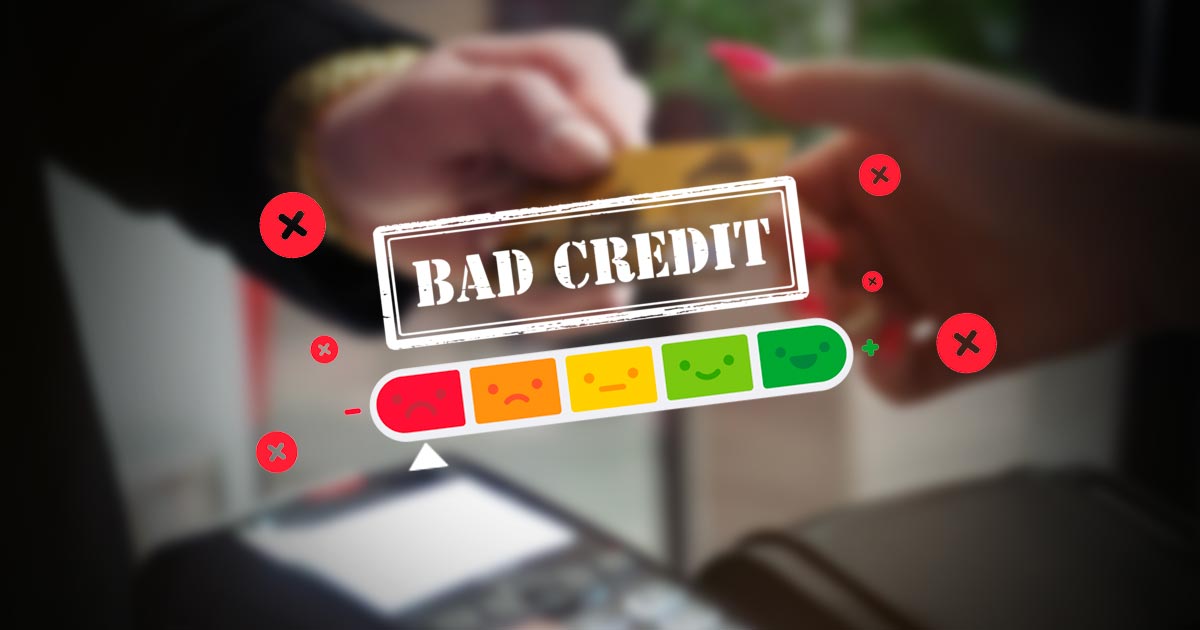The Unforeseen Consequences of a Poor Credit Score: How to Protect Yourself

Most people know that having a low credit score isn’t ideal; it usually means worse terms and higher interest rates on loans and credit cards. But what many fail to realize are the myriad other ways their money — and life — can be affected by bad credit.
It’s important to understand just how far-reaching the consequences of poor financial decisions can be. Hope this article makes you aware of extra troubles which may come with having a less than perfect credit history. Let this knowledge inspire you into taking measures towards improving your standing with lenders.
This post explores some unexpected effects living with a low credit rating may have on your personal life and financial security.
Defining Bad Credit
Before we get started, let’s talk about what exactly constitutes as “bad” or “low” when it comes to these numbers. Contrary popular belief, zero does not mean terrible; most models range from 300-850 (sometimes they will go up to 900). The higher the better—the more robust your borrowing profile is perceived by those doing the scoring.
While different scales may be used among bureaus, here is one breakdown commonly used:
- Very Poor: 300-499
- Poor/Bad: 500-600
- Fair: 601-680
- Good: 681-749
- Very Good: 750-800
- Excellent: 800+
For our purposes today, anything under 600 will do fine in representing someone who has fallen behind financially but still has hope for improvement! There are some cases where even those with scores considered “Fair” could run into trouble; however most everything discussed below applies individuals falling short of six hundred points.
Job Prospects
While not every employer runs pre employment checks against candidates’ credit histories (some states prohibit it), many must or at least should. Checking an applicant’s background often includes looking at their record with money. If someone has shown themselves to be dishonest or untrustworthy financially, that could make them seem like a risk for certain positions where fiduciary responsibility is required. In other words, if you can’t manage your own cash flow then why should anyone believe you’ll do better when handling theirs?
On the bright side: those whose credit report has resulted in not being hired can appeal this decision and may see it change as credit reporting errors are fixed.
Insurance Premiums
Just like how having less-than-stellar scores might mean higher costs through interest rates up charged by lenders; insurance agencies also use this information! That’s right – some states’ car and homeowners’ coverage providers base part of what they charge off where one falls within these ranges. Drivers deemed “less responsible” due poor financial habits (as reflected here) could end up paying three times as much per month than their counterparts who always pay back on time!
Utility Bills
Believe it or not utilities such gas companies sending natural resources into homes; electric businesses powering lights throughout neighborhoods, etc., actually check numbers too before turning anything ON. Sometimes people need to put down deposits guaranteeing future payment won’t be missed – but sometimes service just gets denied completely based upon past delinquencies alone.
Wireless Phone Plans
Did you know that cell phone carriers often look at credit reports? Yep, different types of services have different requirements. It’s true; some providers will want nothing more than $50 upfront while others ask customers sign contracts first promising to pay what’s owed later. In either case though — especially when dealing with expensive smartphones costing several hundreds dollars apiece retail before any promotions apply!!!
As for prepaid plans…. well let’s hope none of my readers ever find themselves there because it means coughing-up full price without any help from carrier subsidies which can be pretty steep depending on model chosen…
Rental Applications
Landlords often do credit checks as part of the rental application process. If a person has a credit score below 600, they may not be able to rent which is why landlords want proof of creditworthiness. They could require documentation of income, renting history, and references to lower perceived risks.
Challenges in Refinancing and Loans
When individuals with poor credit try to refinance or consolidate their loans it becomes challenging. Creditworthiness came first with tighter banking laws making it impossible for people with bad credit to get good interest rates. It’s hard to get loans for debt consolidation or home improvements with low credit scores.
Travel Limitations
Credit cards are required for many travel-related purchases because more people are living cashless lives. Making hotel reservations, auto rentals, and travel bookings usually involves having a credit card. Bad credit makes it difficult to obtain fair-termed ones which limits travel flexibility.
Professional Licensing
Government organizations that oversee professions might consider taking credit reports into account when granting licenses.People such as doctors or contractors may need to provide documentation showing their worthiness for obtaining credits. Lives and licenses are endangered by dramatic drops in credits.
Improving Your Credit Score
Strategic financial management skills combined with persistence can help you regain control over your poor rating. Lowering your debts and paying bills on time are some of the best tactics for doing so.There are programs out there that claim they can improve your score but beware many come at high cost without guaranteed success.
In summary
A high current world needs good credit ratings.Being unable to do things like getting jobs or renting cars because of bad finances.Monitoring closely while taking aggressive measures towards raising them is advised.Inviting unnecessary problems and costs by ignoring health is not recommended

Senior Writer • Business and Information Trends Writer
Lucas writes long-form, investigative articles that explore the deeper implications of business and information advancements.

